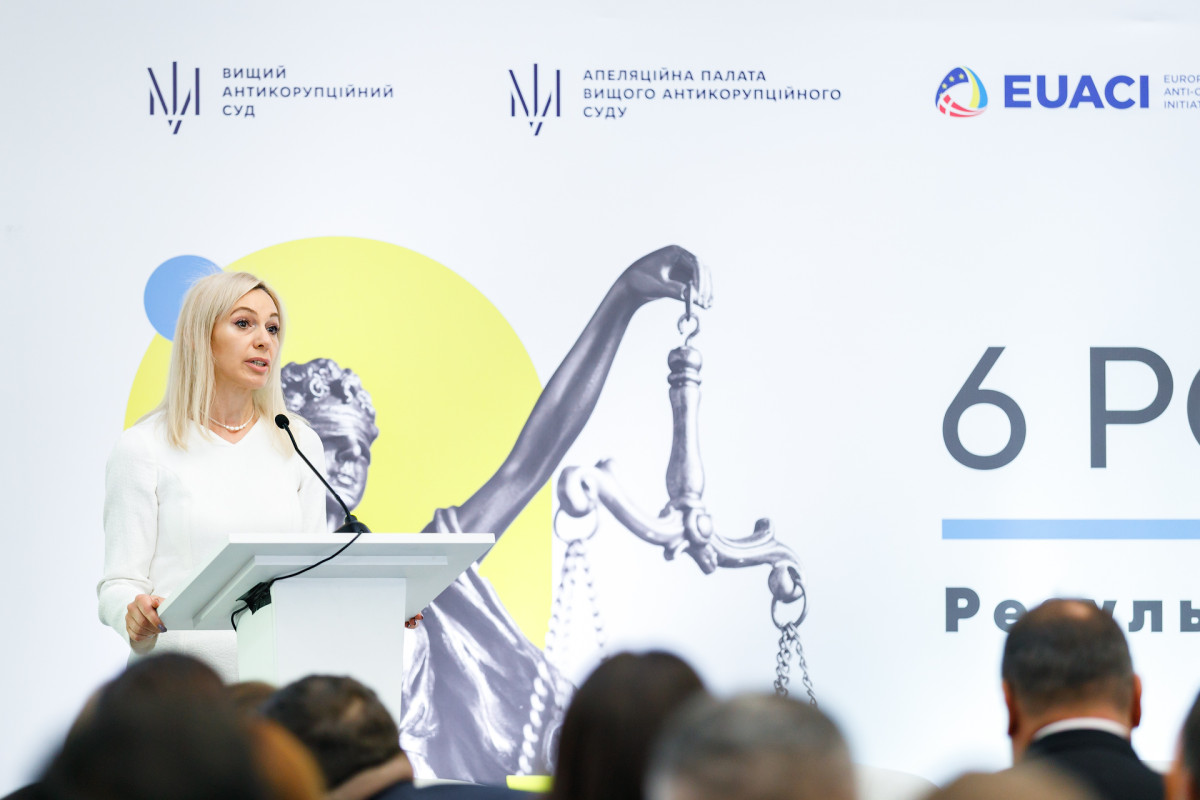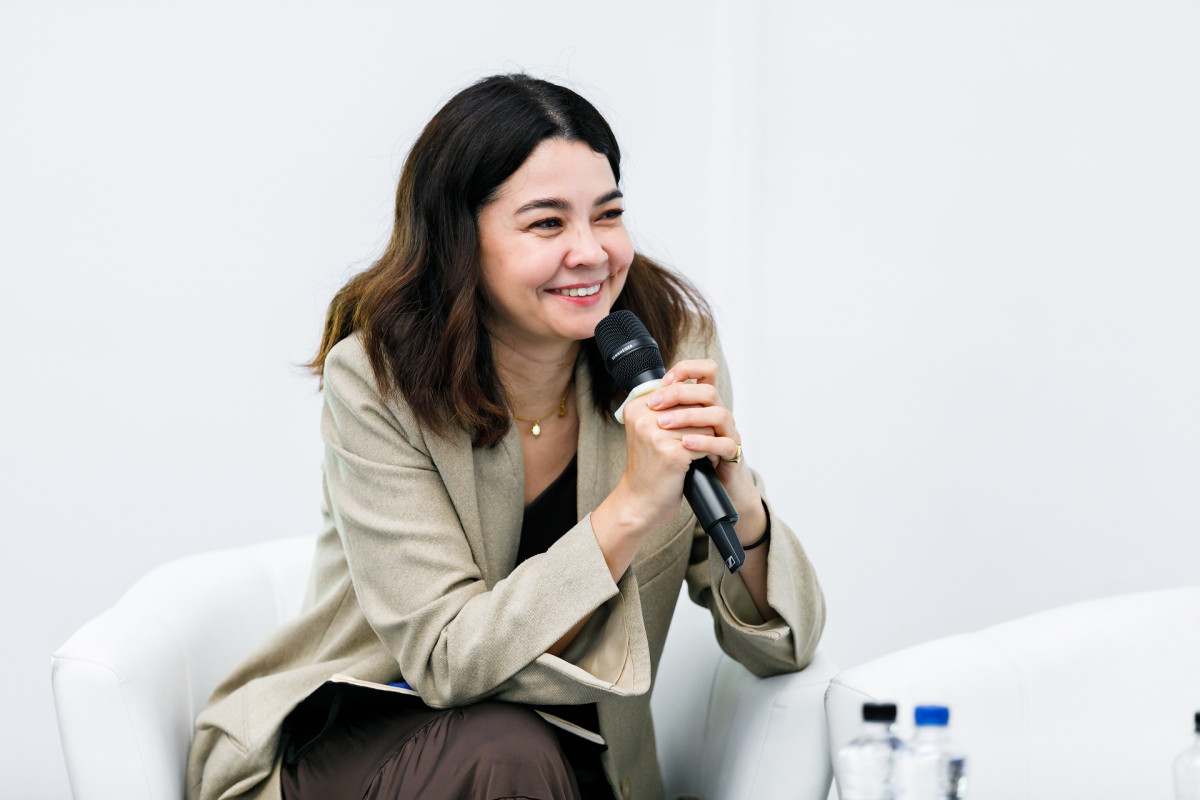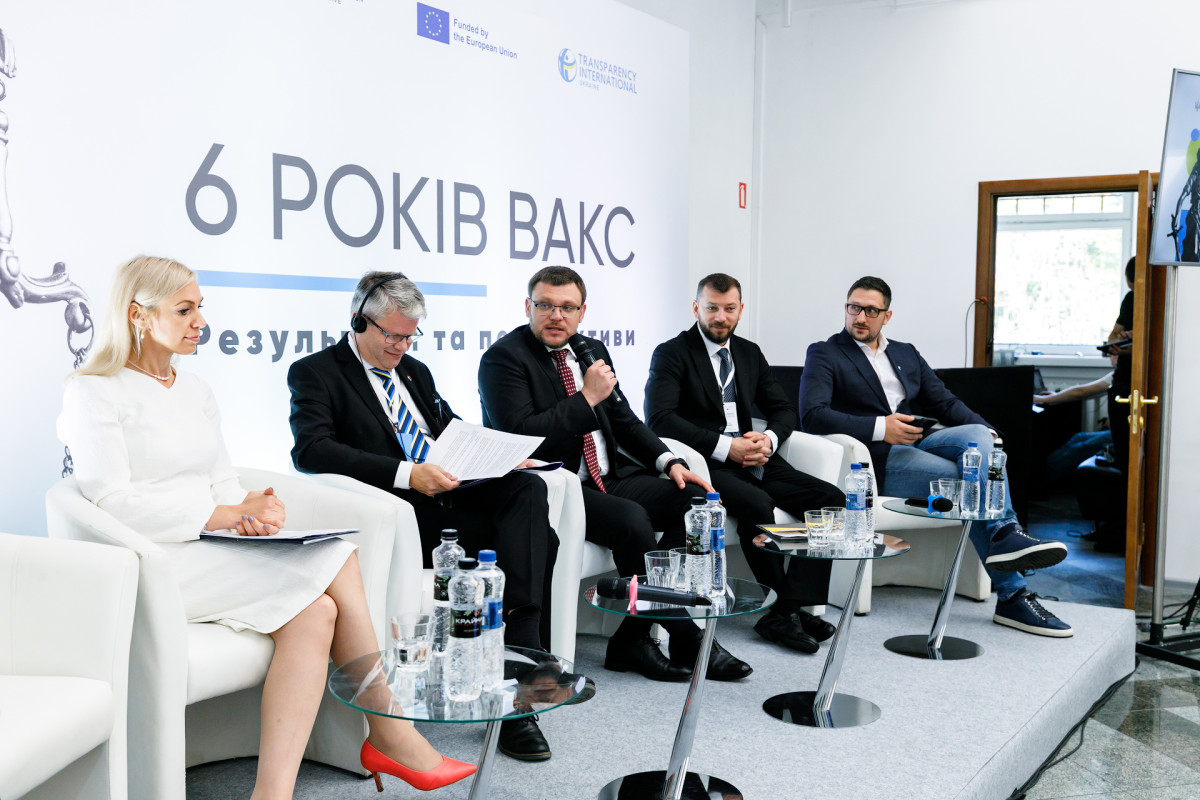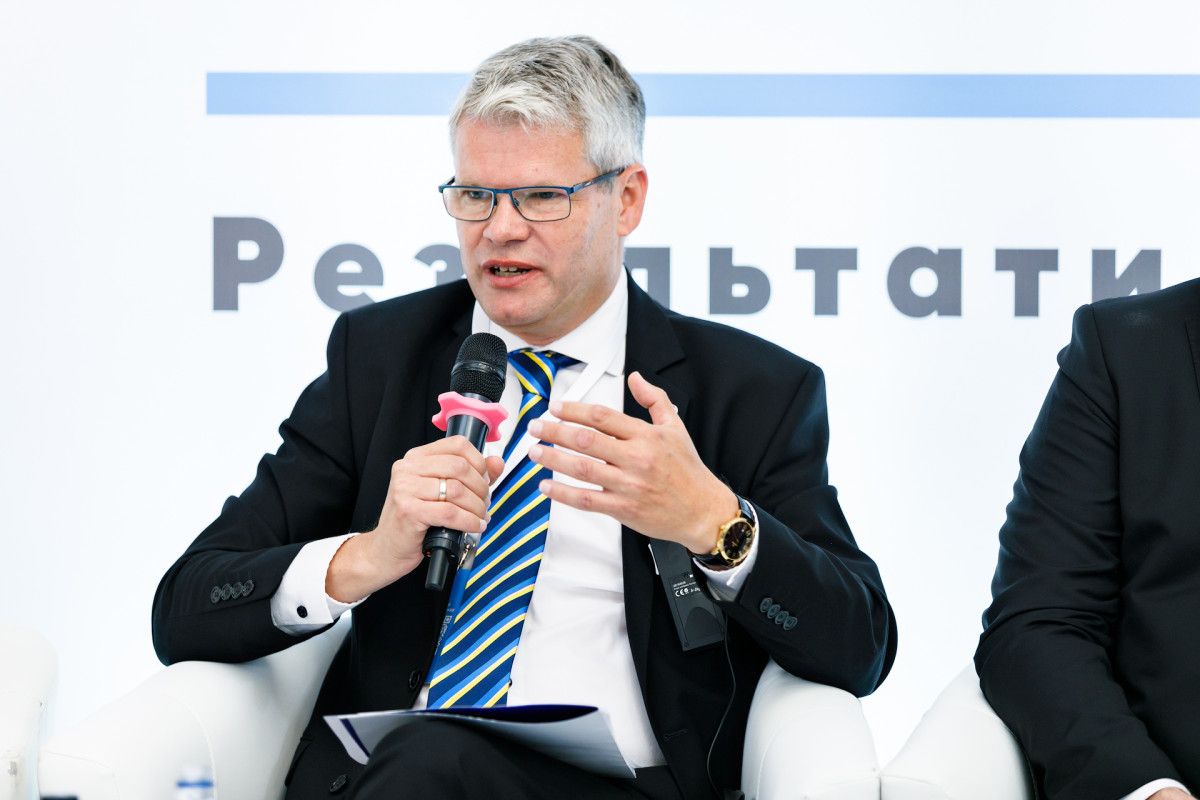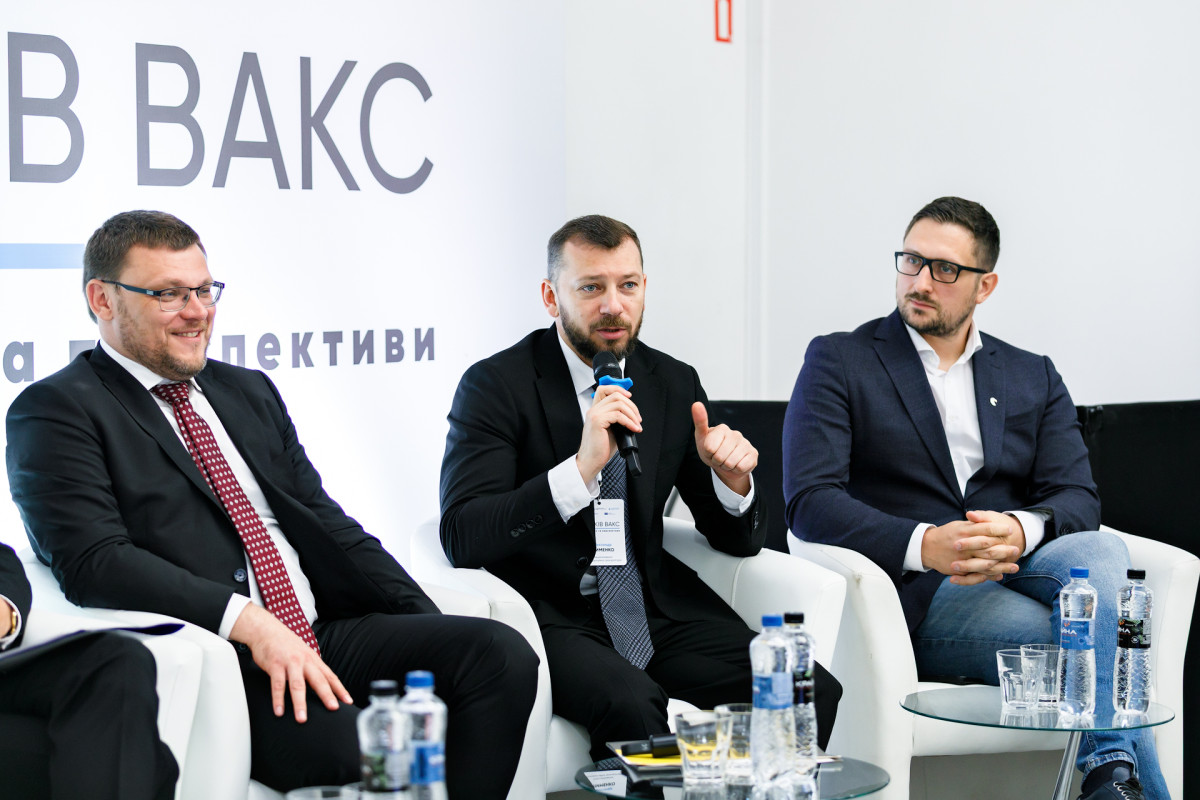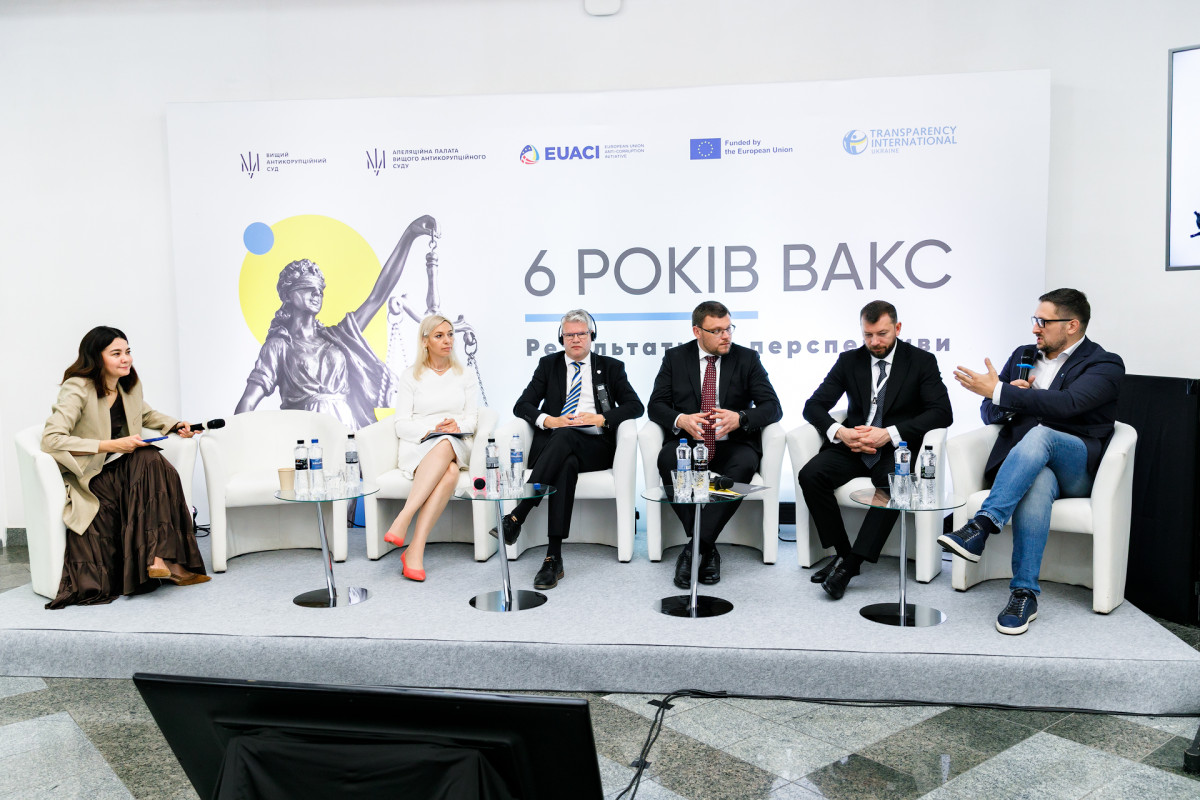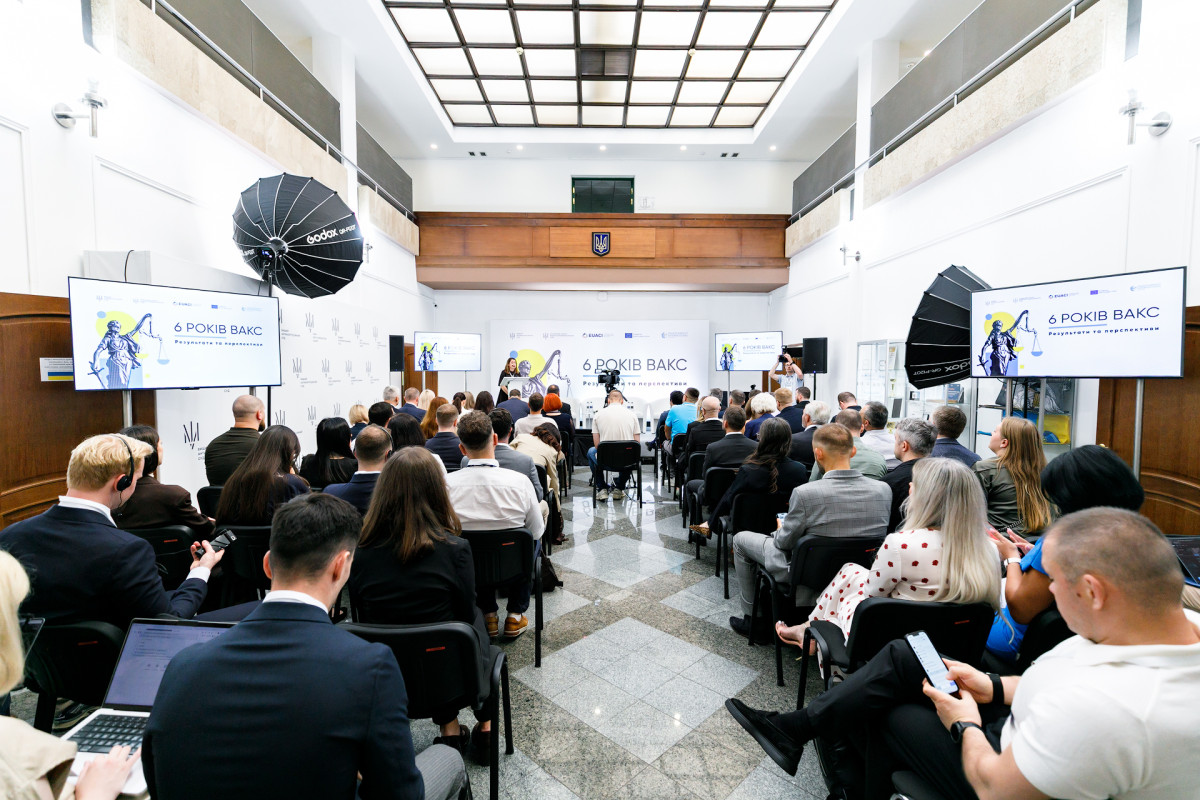

On September 5, Kyiv hosted the event “HACC Turns 6: Results and Prospects” dedicated to the anniversary of the Anti-Corruption Court. Representatives of the NABU, the SAPO, the HACC, as well as experts from civil society, international partners, and the legal community took part in two panel discussions on society’s demand for justice and the practices of the HACC.
In her opening remarks, HACC Head Vira Mykhailenko called the court’s anniversary a reminder of its responsibility to those who believe in the work of anti-corruption institutions and expect justice, as well as to the future that is being built.
Vira Mykhaylenko, Head of the High Anti-Corruption Court
Andrii Borovyk, Executive Director of Transparency International Ukraine, reminded the audience that September 5 marks the first anniversary of the HACC Decided platform, which over the year has collected almost half a thousand cases, hundreds of news and analytical materials, and tens of thousands of documents. He also noted that on this occasion, TI Ukraine has published its sixth HACC monitoring report.
Andrii Borovyk, Executive Director of Transparency International Ukraine, reminded the audience that September 5 marks the first anniversary of the HACC Decided platform, which over the year has collected almost half a thousand cases, hundreds of news and analytical materials, and tens of thousands of documents.
The first panel discussion focused on “Society’s Demand for Justice: From Request to Result.” Leaders of the anti-corruption ecosystem, representatives of international partners, civil society, and the legal community discussed the main challenges currently facing the administration of justice in high-level corruption cases.
Sevgil Musayeva, editor-in-chief of “Ukrainska Pravda“
At the outset, the moderator, Ukrainska Pravda editor-in-chief Sevgil Musayeva, invited participants to assess whether the activities of the anti-corruption institutions meet society’s demand for justice:
- NABU Director Semen Kryvonos rated the work of the anti-corruption system 3 out of 5
- SAPO Head Oleksandr Klymenko gave a solid 4, identifying the main problem as a lack of communication about the progress and results of investigations and court proceedings
- HACC Head Vira Mykhailenko gave a 4+, noting that she refrained from giving the top score of 5 to leave room for improvement
- TI Ukraine’s Executive Director Andrii Borovyk agreed with NABU’s director and rated the system at a solid 3.
“Fighting corruption means systemic work. We all need to draw conclusions and work both on institutional resilience within the bodies and on continuing to demand that the Ukrainian authorities implement reforms,” Andrii Borovyk concluded.
Fighting corruption means systemic work. We all need to draw conclusions and work both on institutional resilience within the bodies and on continuing to demand that the Ukrainian authorities implement reforms.
Andrii Borovyk
Commenting on possible improvements in the work of the anti-corruption institutions, Semen Kryvonos pointed to the challenges they currently face, noting that next week, NABU detectives may be served with notices of suspicion and that searches may be conducted.
Allan Pagh Kristensen, Head of EU Anti-Corruption Initiative in Ukraine stressed that the government must support institutions rather than create obstacles: “I hope that one day anti-corruption reforms and support for anti-corruption institutions will be not only the result of international partners’ and civil society’s efforts, but will also stem from within the political system itself, which will recognize the advantages and value of such institutions.”
Allan Pagh Kristensen, Head of EU Anti-Corruption Initiative in Ukraine
Overall, participants touched on a number of pressing issues — from the way institutions communicate about their results to mechanisms for accelerating trials so that statutes of limitations do not expire. At the end of the discussion, Sevgil Musayeva asked participants about planned changes and commitments for the coming year that would help meet society’s demand for justice.
“To the next HACC anniversary, we plan to complete many socially significant and high-profile criminal proceedings. And we wish the HACC that the percentage of cases where statutes of limitations expire will steadily decrease and verdicts will be handed down even in complex cases,” said Semen Kryvonos.
Oleksandr Klymenko noted that after the so-called “cardboard Maidan” protest, the SAPO launched regular communication with different groups in society, including students and businesses. The institution intends to continue this work to reduce public distrust of anti-corruption bodies.
Oleksandr Klymenko, SAPO Head
Vira Mykhailenko expressed hope that the competition for the selection of new judges would finally be successfully completed, which would expand the staff and accelerate case consideration. She also expressed the expectation that within a year, the court would finally move into a new building.
“This year will indeed not be easy. It will be harder to resist attempts to diminish the influence of anti-corruption institutions on the corruption situation, and harder to keep society’s attention. For civil society and journalists, the main challenge lies in safeguarding the achievements already made in this field,” Andrii Borovyk concluded.
The full discussion can be viewed here:
The event was supported by Transparency International Ukraine and the EU Anti-Corruption Initiative.
Overall, participants touched on a number of pressing issues — from the way institutions communicate about their results to mechanisms for accelerating trials so that statutes of limitations do not expire.




